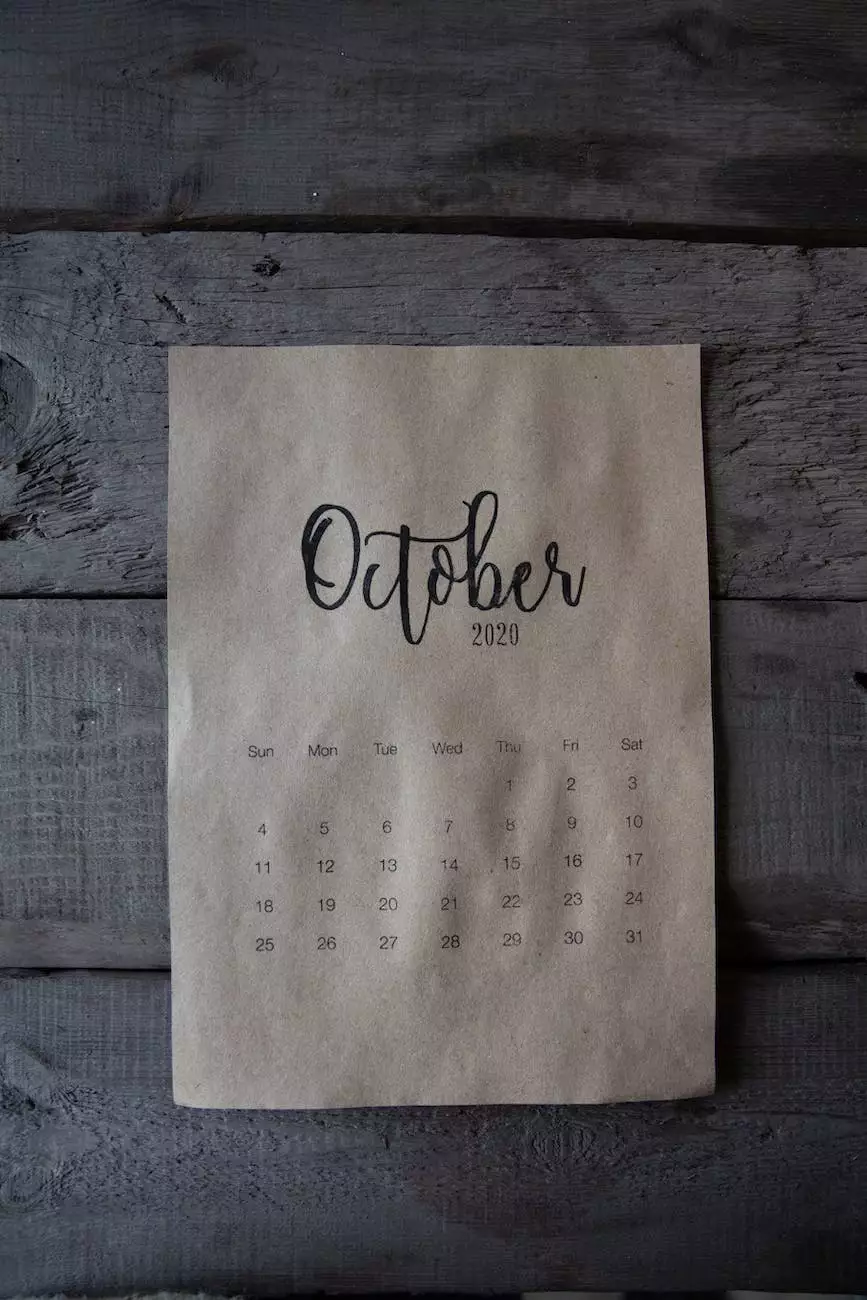English Vocabulary & Phrases To Talk About Days, Weeks, and Months
English Vocabulary Lessons
Welcome to NJCLT, your leading language learning platform, where we provide you with essential English vocabulary and phrases to effortlessly talk about days, weeks, and months. Whether you want to improve your conversational skills or develop a better understanding of the English language, we have you covered.
Days of the Week
Mastering the days of the week is crucial for effective communication in English. Here at NJCLT, we make learning fun and engaging. Let's dive into the English vocabulary for the days of the week:
- Monday: The first day of the working week.
- Tuesday: Following Monday, the second day of the week.
- Wednesday: Midweek, often referred to as "hump day."
- Thursday: The day before Friday, known for its anticipation of the upcoming weekend.
- Friday: The end of the working week, associated with joy and relaxation.
- Saturday: The first day of the weekend, perfect for leisure and recreation.
- Sunday: The final day of the week, often associated with relaxation and preparation for the next week.
By familiarizing yourself with these words, you will be able to effortlessly schedule appointments, arrange meetings, and plan activities, making your English conversations more fluid and natural.
Months of the Year
In addition to the days of the week, understanding the English vocabulary for the months of the year is equally important. Let's explore the twelve months:
- January: The first month of the year, often associated with new beginnings and resolutions.
- February: A month traditionally associated with love, due to Valentine's Day.
- March: The beginning of spring in the northern hemisphere, known for its changeable weather.
- April: A month associated with blooming flowers and the arrival of spring.
- May: The month of longer days and beautiful blossoms, often considered a time of growth and renewal.
- June: The onset of summer, filled with warm weather and vacation plans.
- July: A month synonymous with barbecues, beach trips, and fun in the sun.
- August: The last month of summer, often associated with relaxation and getting ready for the new school year.
- September: The beginning of autumn, characterized by changing leaves and cooler temperatures.
- October: A month known for fall foliage, pumpkins, and Halloween celebrations.
- November: The month of gratitude and thanksgiving, as well as the anticipation of the upcoming holiday season.
- December: The final month of the year, filled with festive cheer and holiday celebrations.
By incorporating these month-related words into your English vocabulary, you will be able to discuss dates, birthdays, holidays, and seasonal events fluently.
Talking about Time
To fully express yourself in English, it is essential to understand how to talk about time accurately. Here are the key phrases and vocabulary related to time:
Telling the Time
When it comes to telling the time, it's important to know the vocabulary associated with different parts of the day:
- Morning: The early part of the day, starting from sunrise until noon.
- Afternoon: The time between noon and evening.
- Evening: The period of the day between the late afternoon and bedtime.
- Night: The time from sunset until sunrise the next day.
Use these phrases and expressions when asking or providing the time to ensure effective communication.
Expressions of Frequency
Being able to express frequency is essential for discussing routines, habits, and schedules. Here are some useful expressions:
- Every day: Occurring daily or on a daily basis.
- Once a week: Happening once in a span of seven days.
- Twice a month: Happening twice within a month.
- Three times a year: Occurring three times in a year.
- Occasionally: Happening from time to time, but not regularly.
- Rarely: Happening very infrequently or almost never.
By incorporating these expressions into your English vocabulary, you will be able to talk confidently about your daily routines and the frequency of various activities in your life.
Conclusion
Congratulations! You have expanded your English vocabulary with essential phrases to talk about days, weeks, months, and time. By incorporating these words into your daily conversations, you will improve your language skills and communicate effectively in English.
At NJCLT, we are committed to providing you with the best language learning resources. Stay tuned for more helpful lessons and tutorials that will take your English proficiency to new heights. Start using your enhanced vocabulary today and watch your confidence soar!










